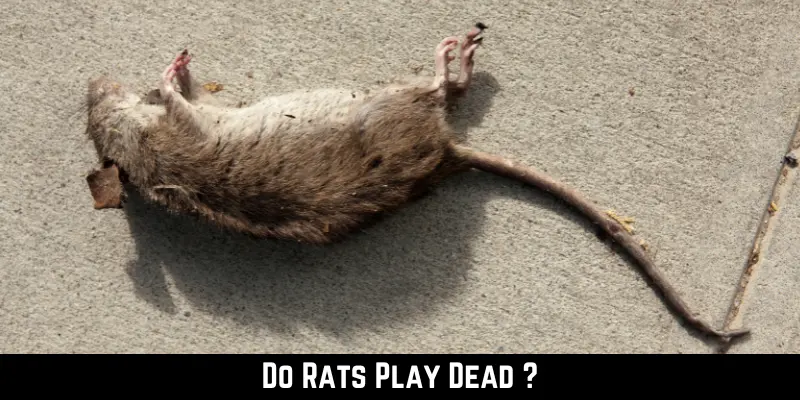Rats are preyed upon by a variety of animals in the wild, including large birds like owls, cats, and snakes. They can pick up scents from humans as well as reptiles and predatory birds. But I am curious if a rat can play dead.
Yes, rats can play dead as a fear response known as tonic immobility. When they sense danger, they may freeze and appear lifeless in hopes of fooling predators into believing they are dead. This survival tactic allows them to outlive many threats in the wild.
A fear response known as tonic immobility may have evolved to fool predators into believing the rat is dead. Keep reading the article further to know how they play dead in front of predators.
Why Do Rats Play Dead?
When they are afraid, rats lie still until the danger has passed. Rats have been observed to move in a variety of ways when confronted by potential predators.
Whenever they sense a threat, they will quickly switch to acting dead in the hopes that the predator will continue to move past. Because of their survival skills, they have been able to outlive so many predators.
A rat will constantly scan the environment to see if anything or anyone is approaching if you pay close attention to it. They always possess the intrinsic capacity to identify danger in their immediate surroundings and take the necessary actions to avoid it. This often indicates using play when an enemy is around.
How Long Can Rats Play Dead?
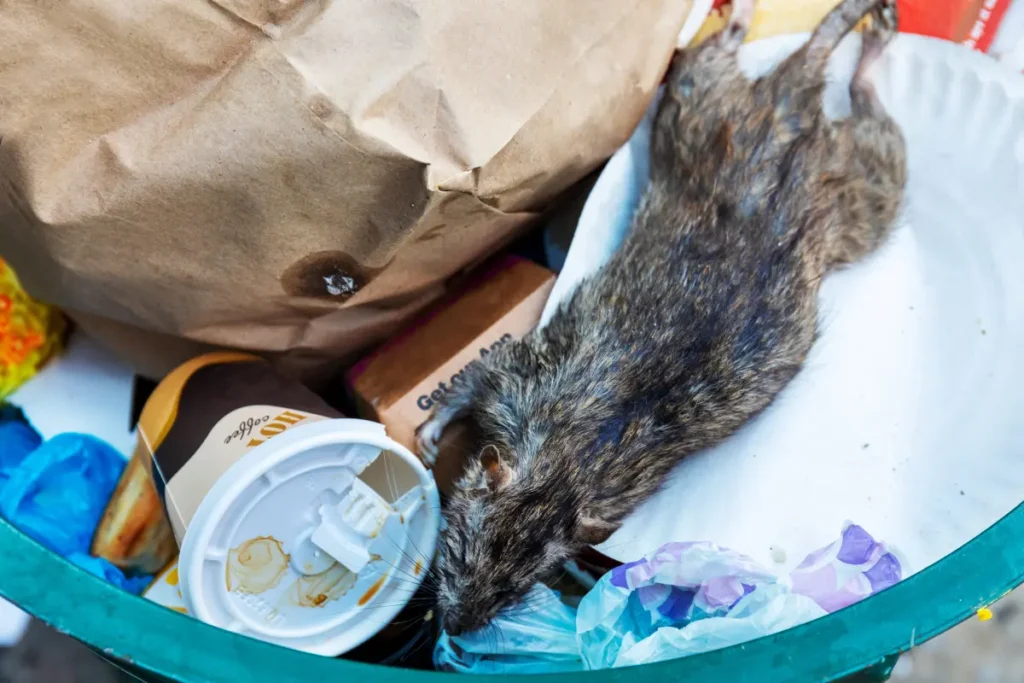
If a rat senses danger but cannot move quickly enough to escape being trapped, it will choose to play dead. In the hopes that the predator will flee, they will continue to hold the “death” position.
Predators are known to relax once they catch a killer. They would constantly watch the area around the kill to make sure that no other predators were nearby to take their kill.
The rat will always take advantage of this and wait until the predator has ceased attentively monitoring them for as long as is necessary before moving.
Until the threat is no longer present, the rat usually continues to act dead. As a result, the sole factor influencing how long a rat will act dead is the existence of a threat. However, when they assume the rat is dead, the majority of animals rapidly walk on.
Can We Recognize The Rat Playing Dead?
Use the following procedure to see if your rat is acting dead:
- Check to see if your rat’s chest is rising if you notice it is motionless in its cage. This would indicate that the rat is both breathing and his heartbeat. Usually, their eyes will be open in this state.
- Don’t try to poke your rat when it is “acting dead” because they won’t respond to it. Instead, watch for movement. If necessary, relocate the rat gently into a hidden location to lessen its anxiety.
- Make sure there is nothing near that could produce a terrified reaction that could aid the frozen condition since a rodent’s “hypnosis” is frequently correlated to danger.
- After a few minutes, a rat usually awakens from a tonic immobility state. keep an eye out for limb movement to indicate that their “hypnosis” has ended.
Do Rats Play Dead If Scared?
When afraid, rats do play dead. Because of their heightened sensitivity, rats are supposed to be able to spot dangers before they cause major harm. This makes trying to terrify them tough.
Predators can scare rats, prompting them to flee. When a predator approaches, it typically presents a lifeless appearance.
Rats can die from fear and disorders brought on by stress, among other things. But fear is less likely to kill a rat than exposure or dehydration. It is possible to frighten a rat out of your house, and there is a very slim chance that it will return.
When they sense danger or when they have been harmed, rodents typically hide. They will pull their limbs in, hold their breath, and close their eyes, giving the impression that they are dead to everyone who sees them.
Do Rats Play Dead With Their Eyes Open?
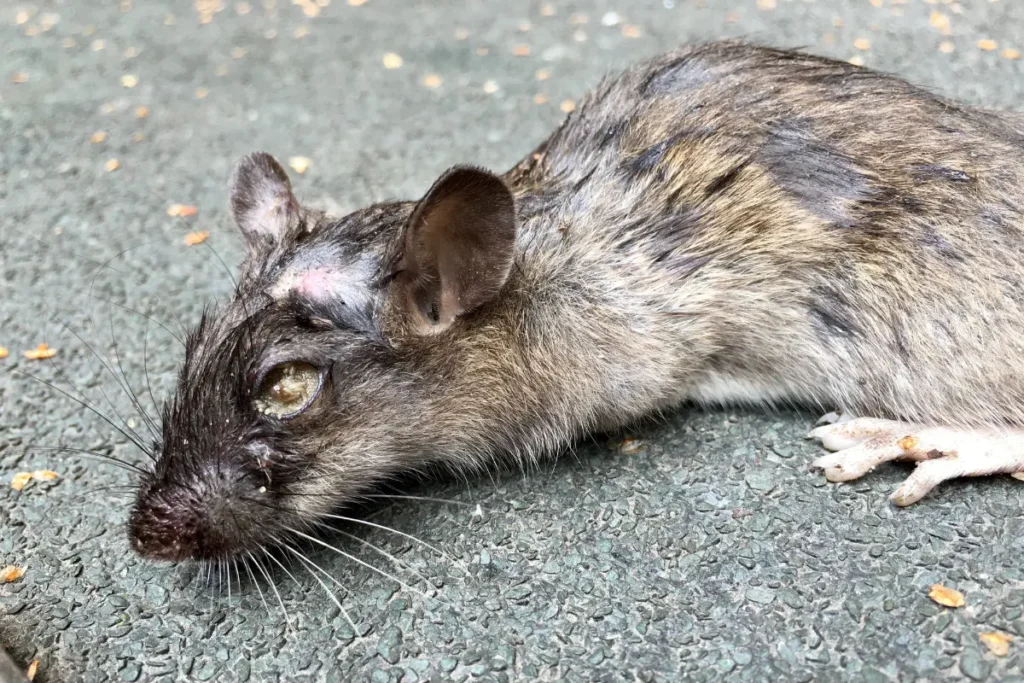
Rats are prey, thus other animals will hunt them. Rats have learned how to blend in when a predator poses a threat to their existence. Rats don’t play with their eyes open. Rodents generally hide when they feel threatened or when they have been hurt.
To make themselves appear dead to anyone who sees them, they will pull their limbs in, hold their breath, and close their eyes. When other predators would have scavenged the rat, its inherent tendency helps it live.
Rats can detect danger in their surroundings on an instinctive level and actively seek it out by avoiding it. However, they have a few crafty ruses in mind for when this threat cannot be evaded. This is especially true if they are being pursued by other animals, especially cats.
Do Mole Rats Play Dead?
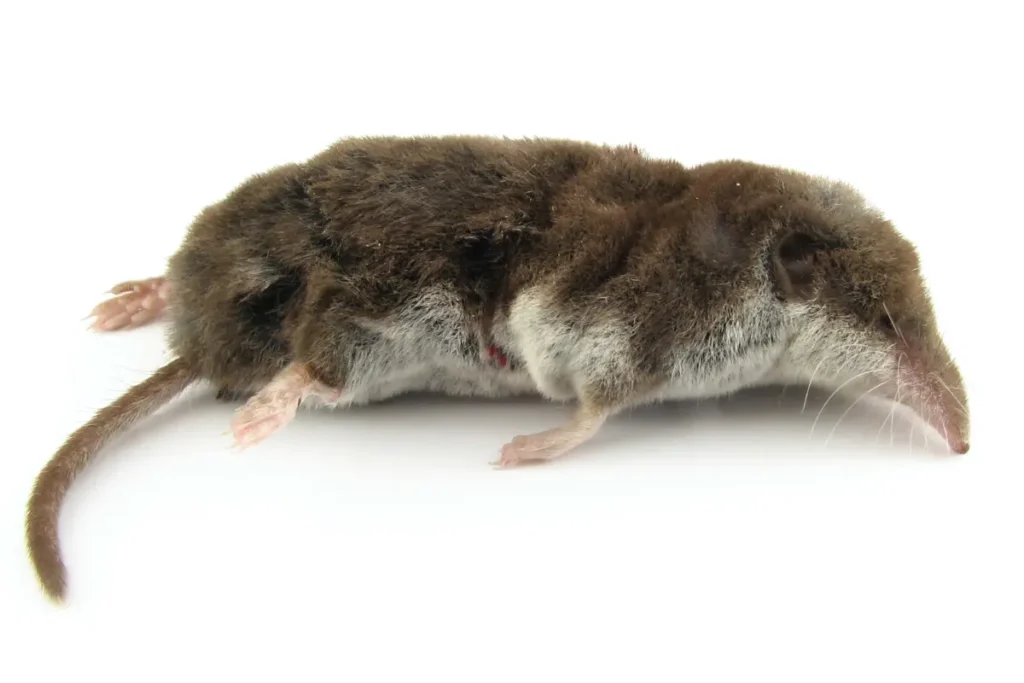
The Sand Puppy, commonly known as the Naked Mole-Rat (Heterophiles glaber), is a rat that usually burrows. They are neither moles nor rats, despite their name. They are more related to guinea pigs and porcupines.
No, They are not playing dead, though. Napping mole rats frequently doze off upside down, on their backs. Although the temperature in their burrows is typically approximately 86 degrees Fahrenheit, unlike most other mammals, they have problems keeping a constant body temperature and often snuggle together to share warmth.
Since they spend almost their entire lives underground, you would hardly ever come into contact with them. Some species, like the naked mole rat, are kept in zoos for study and public outreach.
These animals are kept in environments with plenty of substrate for digging or with man-made tunnels for exploration.
Do Pet Rats Play Dead?
Small rodents frequently seek refuge in hiding when they feel threatened or when they are hurt. To anyone seeing them, they will appear to be dead because they will tuck their limbs in, hold their breath, and close their eyes.
The mouse uses this instinctual tendency to stay alive when it would otherwise be eaten by predators.
Yes, pet mice will pretend to be dead if they are in danger or hurt. Mice and other rodents commonly display this behavior. Since mice are prey animals, other animals seek them to eat.
Mice have learned to conceal themselves when a predator threatens them to survive.
Mice have an innate ability to detect danger in their surroundings, and they constantly attempt to avoid it by avoiding contact with it. But they have a few sleights of hand for when this threat is unavoidable.
Do Mice Play Dead?
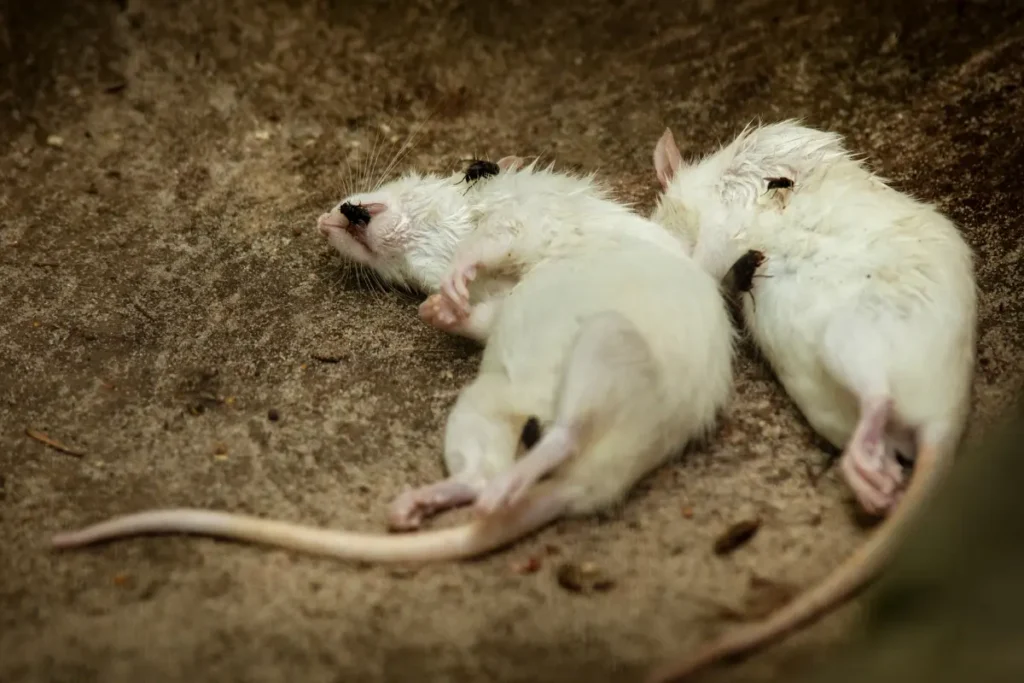
When threatened by possible predators, mice have been seen to move in diverse ways. When they sense any danger close by, they will immediately start acting dead in the hopes that the predator will move on. They have used this survival talent to deceive numerous predators and prolong their lives.
Contrary to popular belief, mice are not completely stupid. They have a long history of tricking other animals, particularly cats, with their fake deaths.
If you pay great attention to a mouse, you will find that it is always scanning the area to see if anything or anyone is coming it is the way.
They constantly take the required precautions to avoid danger because they have a strong knack for spotting it in their immediate environment.
The majority of cats have always been surprised by mice acting dead. They will always use this strategy to survive if they are cornered.
Do Mice Play Dead When Scared?
Mice are thought to be very sensitive, which enables them to recognize any danger before it poses serious harm. This makes frightening them a difficult effort.
Mice can be startled by predators, causing them to run away. They usually act dead when they are confronted by a predator.
Yes, when frightened, mice act dead. Mice have an instinct that aids them in identifying risks and dangers in their surroundings because they are prey animals. They act on the impulse by trying to avoid the threat completely.
However, mice have a couple of tricks up their sleeves if the threat is about to give way and there is nowhere to hide. They’ll constantly be prepared to play tricks on their predators. Mice will remain still until the threat has passed when confronted with a dangerous circumstance.
Conclusion
When pressure is given on the upper back of a rat, they are prone to freezing or becoming limp. This response mainly happens when the rat is in danger or is afraid that a predator is about to eat it. When handled roughly or with sufficient pressure applied to their backs, rats “play dead.”
A pet rat owner need not be concerned because the trance will pass in a matter of minutes. Adult rats still have this reflex, thus lifting them by pinching the nape of the neck will make them limp. However, a rat could experience fear and helplessness as a result.
Holding a pet rat by the stomach and under the lower half is the ideal way to manage one. Even if “playing dead” is not entirely understood, your rat won’t get hurt if you do it.
